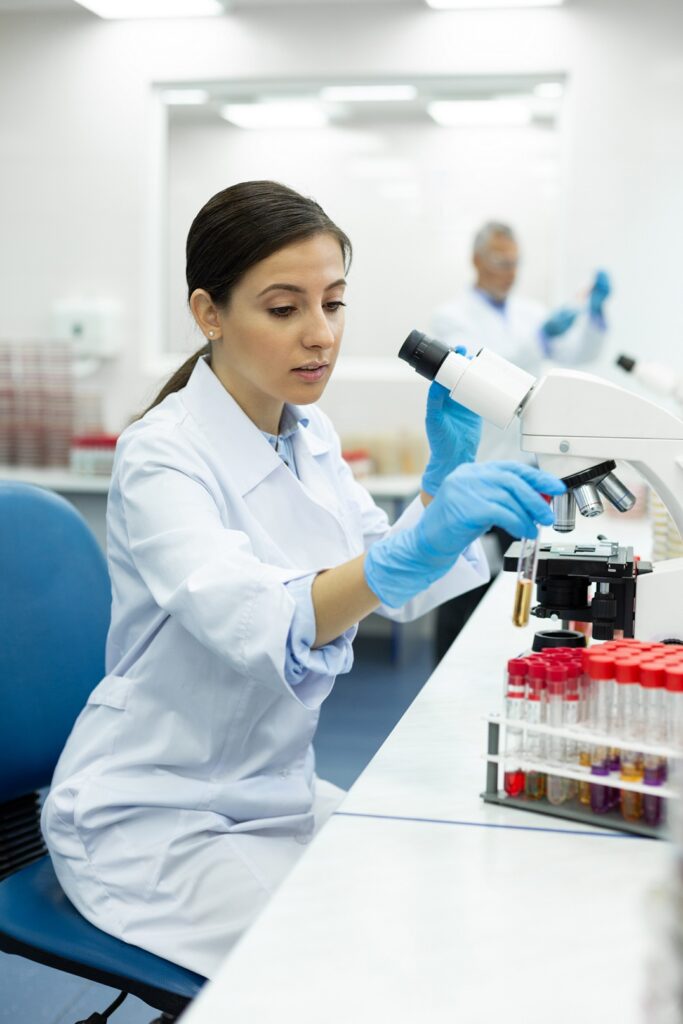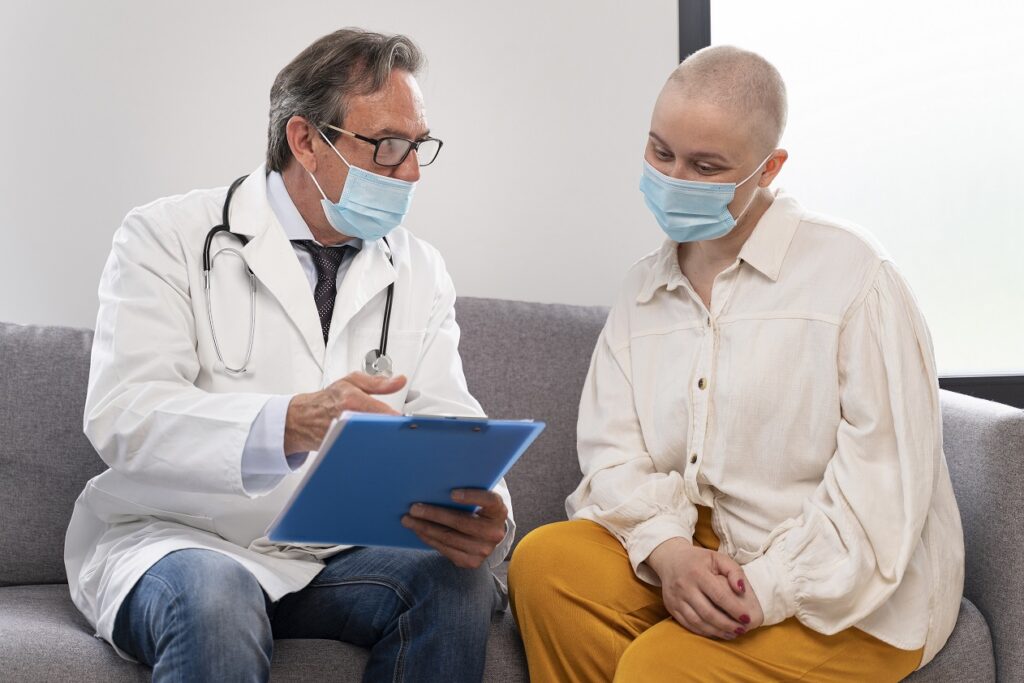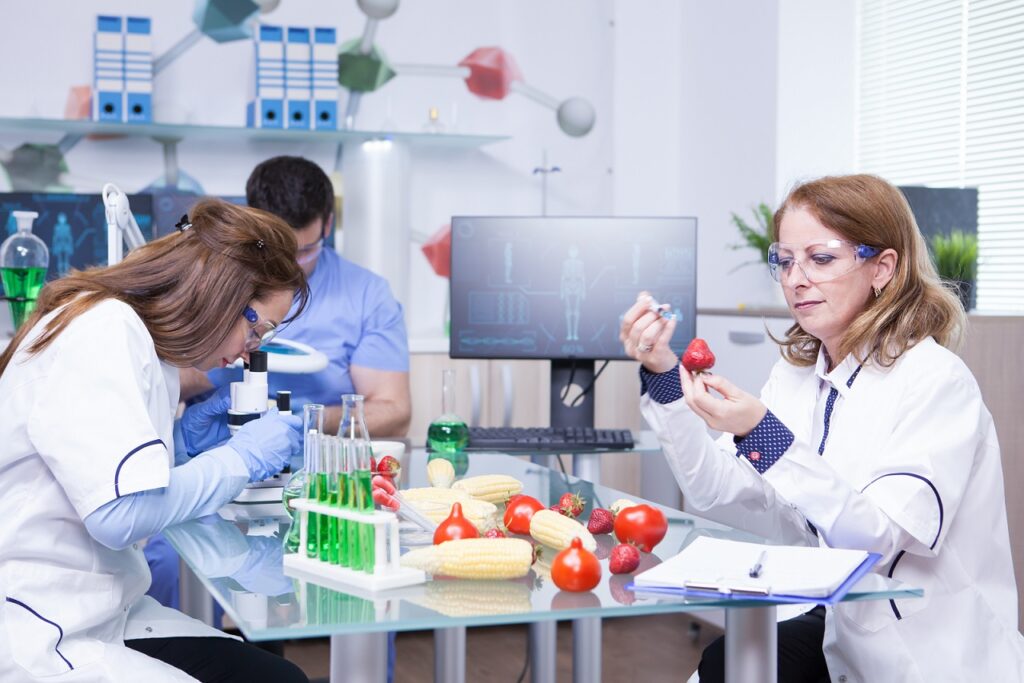Custom Cancer Care: RGCC Precision Solutions | F.B.Garh
Introduction
What is the RGCC Test?
The RGCC Test, also known as the Circulating Tumor Cell (CTC) Test, is an advanced diagnostic tool used in precision oncology. It is designed to detect and analyze circulating tumor cells and cancer stem cells in the blood of patients with cancer. This test is based on cutting-edge genetic and molecular analysis techniques, offering a personalized approach to understanding and treating cancer.Identifies circulating tumor cells in the blood, providing insights into the presence and progression of cancer.
Analyzes genetic variations to predict individual responses to chemotherapy, aiding in personalized treatment planning.
Evaluates the effectiveness of chemotherapy drugs, targeted therapies, and natural substances against cancer cells.
Assesses the impact of natural biological substances and extracts on cancer cells.
Examines genetic markers to predict responses to various drugs, optimizing treatment and minimizing side effects.
Focuses on the immune system’s status and its ability to combat cancer, crucial for immunotherapy and other treatments.
Identifies and analyzes cancer stem cells, important for understanding cancer aggressiveness and potential recurrence.
A non-invasive test that detects and analyzes tumor DNA in the blood, useful for monitoring treatment response and detecting minimal residual disease.
Assesses factors related to angiogenesis, essential in tumor growth and metastasis.

Key Features of the RGCC Test
Detection of Circulating Tumor Cells (CTCs)
Identifies cancer cells that have detached from the primary tumor and are circulating in the bloodstream.
Genetic and Molecular Analysis
Provides detailed information about the genetic mutations and characteristics of the cancer cells.
Personalized Treatment Options
Helps in selecting the most effective treatments based on the specific characteristics of the cancer cells.
Monitoring Cancer Progression
Useful in tracking the effectiveness of treatment and the progression of the disease.
How Does the RGCC Test Work?
The RGCC Test involves a multi-step process
A small sample of blood is drawn from the patient.
Using advanced techniques, CTCs are isolated from the blood sample.
The isolated cells undergo detailed genetic and molecular analysis to identify specific mutations and characteristics.
A comprehensive report is generated, providing insights into the genetic profile of the cancer cells and potential treatment strategies.

Technologies Used in RGCC Test
Cell Separation Technologies
Techniques like size-based filtration and immuno-magnetic separation are used to isolate CTCs.
Genomic Sequencing
High-throughput sequencing technologies provide detailed genetic information.
Bioinformatics Analysis
Advanced software is used to interpret the genetic data and provide actionable insights.
Benefits of the RGCC Test
Personalized Medicine
The RGCC Test plays a crucial role in the field of personalized medicine. By understanding the specific genetic makeup of a patient's cancer, treatments can be tailored to target these unique characteristics, potentially increasing the effectiveness of therapy and reducing side effects.
Early Detection and Monitoring
The ability to detect CTCs in the blood allows for the potential early detection of cancer and monitoring of treatment efficacy. This can be particularly valuable in assessing the risk of recurrence and in making timely adjustments to treatment plans.
Non-Invasive Procedure
As the RGCC Test only requires a blood sample, it offers a non-invasive alternative to traditional biopsy methods. This reduces the risk and discomfort associated with tissue biopsies.
Applications of the RGCC Test
Cancer Treatment Planning
The RGCC Test provides vital information that can guide the selection of chemotherapy drugs, targeted therapies, and other treatment modalities. This personalized approach aims to improve treatment outcomes and reduce the trial-and-error process often associated with cancer treatment.
Monitoring Disease Progression
Regular RGCC testing can help in monitoring the response to treatment and detecting any changes in the cancer’s genetic profile. This information is crucial for adjusting treatment plans and for early intervention in case of disease progression or recurrence.
Research and Development
The data obtained from RGCC Tests contribute to ongoing cancer research, enhancing the understanding of cancer biology and aiding in the development of new therapies.
Limitations and Considerations
While the RGCC Test offers significant advantages, it is important to consider its limitations:
- Not a Standalone Diagnostic Tool: The RGCC Test is not used for cancer diagnosis but as a complementary tool for treatment planning and monitoring.
- Availability and Cost: The test may not be widely available in all regions and can be costly.
- Interpretation of Results: The complexity of the results requires interpretation by specialists in oncology and genetics.
Chemo Sensitivity Testing with the RGCC Test
An integral component of the RGCC Test is its ability to perform chemo sensitivity testing. This aspect of the test evaluates how effective specific chemotherapy agents and other drugs might be in treating a patient’s cancer. By exposing the isolated circulating tumor cells (CTCs) to various chemotherapy drugs, the test can determine the sensitivity or resistance of these cells to these treatments.
How Chemo Sensitivity Testing Benefits Patients
Chemo sensitivity testing allows oncologists to identify which chemotherapy drugs are most likely to be effective against a patient’s specific cancer cells. This personalized approach can significantly increase the likelihood of treatment success.
By avoiding chemotherapy drugs that are likely to be ineffective, patients are spared from unnecessary side effects, enhancing their quality of life during treatment.
Personalized treatment plans based on chemo sensitivity testing can be more cost-effective, as they reduce the trial-and-error approach often associated with finding the right chemotherapy drug.
Cancer cells can evolve and develop resistance to certain treatments. Regular RGCC testing with chemo sensitivity analysis can help in adapting the treatment plan to these changes, ensuring ongoing effectiveness of the therapy.

The Process of Chemo Sensitivity Testing
Exposure of CTCs to Drugs
The isolated CTCs from the patient’s blood sample are exposed to a range of chemotherapy agents.
Assessment of Cell Viability
The response of the cells to each drug is assessed. A decrease in cell viability indicates sensitivity to the drug, while little to no change suggests resistance.
Detailed Reporting
The results are compiled into a detailed report, providing a ranked list of chemotherapy agents based on their effectiveness against the patient’s cancer cells.
Implications for Cancer Treatment
The inclusion of chemo sensitivity testing in the RGCC Test represents a significant step forward in personalized cancer therapy. It empowers oncologists with precise information to make informed decisions about chemotherapy regimens, potentially improving treatment outcomes and patient well-being. As we continue to embrace personalized medicine, the role of chemo sensitivity testing becomes increasingly important in the strategic planning of cancer treatment.
Sensitivity to Targeted Drugs in the RGCC Test
In addition to chemo sensitivity testing, the RGCC Test plays a pivotal role in evaluating the sensitivity of cancer cells to targeted drugs, which are a cornerstone of modern oncology. Targeted therapy involves drugs that are designed to interfere with specific molecular targets associated with cancer. The RGCC Test’s ability to assess how a patient’s cancer cells respond to these targeted agents is a significant advancement in personalizing cancer treatment.
Advantages of Assessing Sensitivity to Targeted Drugs
By identifying which targeted therapies are most likely to be effective against a patient’s specific cancer, the RGCC Test enables a more precise and effective treatment strategy.
Targeted therapies often have fewer side effects compared to traditional chemotherapy. Identifying the most effective targeted drug can further minimize unnecessary side effects.
Cancer cells can develop resistance to certain treatments. The RGCC Test helps in identifying alternative targeted therapies that the cancer cells may be more sensitive to.
The test provides oncologists with valuable information to make informed decisions about incorporating targeted therapies into the treatment regimen.

The Process of Assessing Sensitivity to Targeted Drugs
Exposure to Targeted Agents
The isolated CTCs are exposed to various targeted drugs, including monoclonal antibodies, small molecule inhibitors, and other agents.
Evaluating Cellular Response
The response of the cancer cells to each targeted agent is assessed. Effective drugs will show a significant impact on the viability or behavior of the cancer cells.
Comprehensive Analysis
The results are analyzed and compiled into a report, providing insights into which targeted therapies are most likely to benefit the patient.
Impact on Cancer Treatment
The ability to assess sensitivity to targeted drugs through the RGCC Test is transforming cancer treatment. It allows for a more nuanced and effective approach to therapy, moving beyond one-size-fits-all solutions to a more tailored and patient-specific strategy. This aspect of the test is particularly valuable in the treatment of cancers that are known to respond well to targeted therapies, such as certain types of breast, lung, and colorectal cancers.
Sensitivity to Nutraceuticals in the RGCC Test
A unique and highly beneficial aspect of the RGCC Test is its ability to assess the sensitivity of cancer cells to nutraceuticals. Nutraceuticals, a portmanteau of ‘nutrition’ and ‘pharmaceuticals’, are natural products with health-giving benefits, often used to support conventional cancer treatments. They include vitamins, minerals, herbs, and other botanicals. By evaluating how a patient’s cancer cells respond to different nutraceuticals, the RGCC Test can guide the integration of these natural agents into a comprehensive cancer treatment plan.
Advantages of Nutraceutical Sensitivity Testing
Nutraceuticals can complement traditional cancer treatments, potentially enhancing their effectiveness and mitigating side effects.
This testing allows for the development of personalized nutrition strategies that can support the body’s immune system and overall health during cancer treatment.
Some nutraceuticals have been found to have anti-cancer properties, potentially inhibiting the growth and spread of cancer cells.
By incorporating beneficial nutraceuticals into the treatment plan, patients may experience an improved quality of life and better overall well-being.

The Process of Nutraceutical Sensitivity Testing
Exposure to Nutraceuticals
The isolated CTCs are exposed to a variety of nutraceutical compounds.
Measuring Cell Response
The test measures how these natural substances affect the viability, proliferation, and other behaviors of the cancer cells.
Detailed Reporting
The results provide insights into which nutraceuticals are most likely to be effective, helping to tailor a supportive care regimen alongside conventional treatments.
Impact on Integrative Cancer Care
The inclusion of nutraceutical sensitivity testing in the RGCC Test represents an important step in the field of integrative oncology, which combines traditional and complementary treatment approaches. This testing empowers healthcare providers to recommend specific nutraceuticals that are aligned with the patient’s unique cancer profile, potentially enhancing the efficacy of conventional treatments and supporting the patient’s overall health.
Drug Resistance Proteins in the RGCC Test
The RGCC Test includes an analysis of drug resistance proteins, which are crucial in understanding how cancer cells may resist certain treatments. This test identifies specific proteins that cancer cells express, which can actively pump chemotherapy drugs out of the cells, reducing the drugs’ effectiveness. By detecting these proteins, the RGCC Test helps in predicting the resistance of cancer cells to chemotherapy, guiding oncologists in selecting more effective, personalized treatment regimens. This aspect of the test is vital for optimizing cancer treatment strategies and improving patient outcomes by avoiding less effective drugs.
Conclusion
The RGCC Test represents a significant advancement in the field of oncology, offering a personalized approach to cancer treatment and management. By providing detailed insights into the genetic and molecular characteristics of cancer cells, the RGCC Test aids in the selection of targeted therapies, monitoring of disease progression, and contributes to the broader understanding of cancer biology. As research and technology continue to evolve, the RGCC Test and similar diagnostic tools will play an increasingly vital role in the fight against cancer.